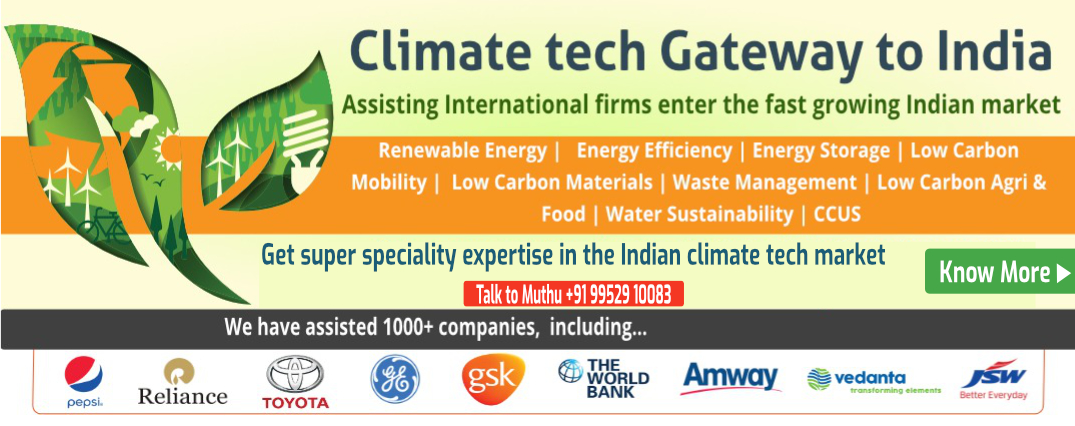This post is a part of Climate G2I Intelligence series from Energy Alternatives India (EAI), India’s leading climate-tech consulting firm.
G2I stands for Gateway 2 India, and provides comprehensive market intelligence and go-to market assistance for International firms entering the Indian climate-tech market. More about Climate G2I from here
Mitsui, a leading Japanese conglomerate, has recently invested ₹4.1 million in Punjab Renewable Energy Systems Pvt. Ltd. (PRESPL), a company focused on collecting agricultural residues and converting them into biomass briquettes and pellets. This investment underscores the growing potential of the Indian biomass sector, which is expected to witness significant growth in the coming years.
The Indian biomass market is estimated to be valued at around ₹50,000 crore and is projected to reach ₹1,00,000 crore by 2025, driven by factors such as the Increasing demand for renewable energy, Growing awareness of environmental concerns, and Supportive government policies.
The Indian biomass sector is also witnessing a surge in international collaborations, with several prominent companies entering the market through partnerships and alliances. For instance, Aramco, a prominent oil and gas company, joins forces with ReNew Power, India’s largest renewable energy company, to explore opportunities in developing and deploying low-carbon technologies, including biomass-based power solutions. This collaboration signifies the growing interest of leading energy giants in exploring cleaner alternatives.
Net Zero by Narsi
Insights and interactions on climate action by Narasimhan Santhanam, Director - EAI
View full playlistAdditionally, Danish Biogas’s collaboration with the Maharashtra Energy Development Agency (MEDA) brings together expertise in advanced biogas technologies with experience in promoting renewable energy and rural development in Maharashtra. This partnership contributes to a more sustainable waste management system through biogas generation..
These strategic partnerships are just a glimpse into the exciting developments propelling the Indian biomass sector forward. The government is also playing a crucial role in accelerating its growth through supportive initiatives like subsidies for setting up biomass power plants and briquette/pellet production units, promoting dedicated energy crops and efficient residue collection systems, and providing tax benefits for biomass projects. Investments in research and development are also being made to improve conversion technologies, optimize feedstock utilization, and develop cost-effective biomass solutions.
Navigating this complex ecosystem requires a comprehensive understanding of the key players involved. The Indian biomass value chain comprises various stakeholders, including biomass producers like farmers and forestry companies, collectors and aggregators responsible for managing feedstock collection and storage, processing and conversion companies that transform biomass into usable forms, original equipment manufacturers (OEMs) who create machinery for the sector, suppliers providing essential goods and services, power plants and industries utilizing biomass-based fuels, and government agencies responsible for regulation and promotion.
Beyond the core value chain, the adjacent value chain plays a crucial role in supporting the sector’s growth. This includes financial institutions offering loans and investments for biomass projects, research institutions and universities engaged in R&D advancements, and non-governmental organizations (NGOs) promoting sustainable practices and advocating for policy changes.
Indigenization remains moderate to low currently, with reliance on imported technologies and equipment. However, government initiatives and rising demand are expected to gradually increase domestic capabilities in the coming years.
This post is a part of Climate G2I Intelligence series from Energy Alternatives India (EAI), India’s leading climate-tech consulting firm.
G2I stands for Gateway 2 India, and provides comprehensive market intelligence and go-to market assistance for International firms entering the Indian climate-tech market. More about Climate G2I from here






 Our specialty focus areas include
Our specialty focus areas include



